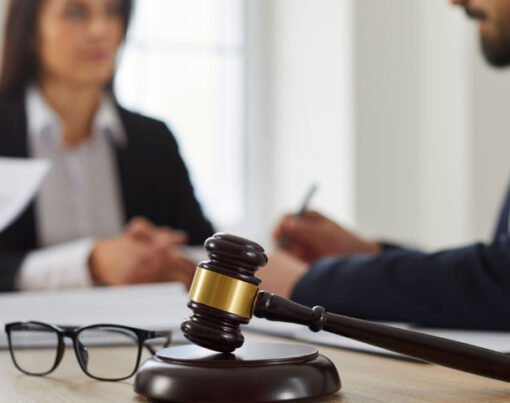Defending against a criminal charge in 2024 necessitates a comprehensive grasp of the criminal justice system, which has become increasingly complex. This is highlighted by the Pew Research Center’s 2022 report, showing only 0.4% of federal criminal defendants were acquitted, indicating the substantial challenges faced within the U.S. federal system.
This article delves into key aspects of the defense process, emphasizing the crucial need to understand your legal rights, secure skilled legal representation, and develop effective strategies to navigate these complexities. It provides valuable insights on formulating a strong defense strategy, guiding you from the preliminary stages of understanding your rights through the intricacies of court proceedings.
Table of Contents
Securing Legal Representation
Securing experienced legal representation is a critical step in defending against a criminal charge. It’s important to choose an attorney with expertise related to your charge and a proven track record in similar cases.
For instance, opting for a reputable law firm like Lawrence J. Zimmerman, Attorney At Law, can make a significant difference. These professionals provide specific expertise, resources, and experience that are necessary for successfully navigating the legal system’s complexities and building a strong defense. Keep in mind that the outcome of your case can be significantly impacted by the standing and dependability of the legal firm you select.
Understanding Your Rights
A key component of your defense in a criminal case is knowing your rights, including the right to counsel and the right to stay silent. These rights are intended to keep you safe from being forced to testify against yourself and to guarantee justice throughout the legal system. It is important to comprehend the scope of these rights as well as the implications of renouncing them.
Comprehending your rights in scenarios like searches, seizures, and the collection of evidence against you is vital. Being knowledgeable about these rights allows you to effectively navigate the legal system, safeguarding your interests and ensuring that your case is handled justly.
Gathering Evidence and Building Your Defense
Collaborating with your attorney in evidence collection is a multifaceted and crucial aspect of preparing a strong defense. It involves a comprehensive approach to gathering evidence, encompassing various types such as physical and digital evidence. Physical evidence may include items like documents, photographs, or objects related to the case, while digital evidence might involve data from computers, smartphones, or surveillance systems. Recognizing the significance of both types of evidence is crucial, as they often complement each other in building a compelling defense.
Understanding the legal protocols for evidence collection is fundamental. These protocols dictate how evidence should be obtained, preserved, and presented in a court of law. Failure to adhere to these procedures can render valuable evidence inadmissible, potentially weakening your defense. Your attorney plays a pivotal role in ensuring that all evidence is collected in a manner that conforms to these protocols, which may involve issuing subpoenas, conducting witness interviews, engaging in forensic counseling, or obtaining expert testimony.
However, the role of your attorney extends beyond evidence collection. They are responsible for crafting a comprehensive defense strategy that strategically counters the arguments put forth by the prosecution. This strategy considers the strengths and weaknesses of your case, utilizing all available evidence to construct a coherent narrative in your favor. It may entail scrutinizing the credibility of witnesses, challenging the chain of custody for physical evidence, or presenting alternative interpretations of the events in question. Your attorney’s expertise is instrumental in creating a strong defense tailored to the unique circumstances of your case.

Navigating the Legal System
Understanding the intricacies of the criminal justice system is essential for navigating your case effectively. From the initial arraignment to potential trial proceedings, each stage has specific procedures and crucial decision points, such as contemplating plea deals or proceeding to trial. Awareness of your rights throughout these stages is vital. Knowing these legal processes and their potential outcomes helps in making strategic decisions in your case, ensuring your rights are protected and your defense is as strong as possible.
Dealing with the Emotional Impact
Dealing with the emotional strain of a criminal charge is a critical aspect of the defense process. The stress and anxiety associated with legal battles can be overwhelming, impacting your mental well-being and decision-making capacity. Proactive steps, such as seeking psychological support through therapy or joining groups with similar experiences, are also vital.
These support systems can offer much-needed comfort and perspective, helping to alleviate the emotional burden. Emotional resilience plays a crucial role in maintaining clear thought, effective communication with your legal team, and active involvement in your defense. Prioritizing emotional health is not just about personal care but also about ensuring a more focused and rational approach to your legal challenges.
Conclusion
The process of defending against a criminal charge is complex. It involves understanding your legal rights, collaborating with your lawyer in evidence gathering and defense building, navigating the complex legal system, and managing the emotional impact of the charge. Being proactive, well-informed, and emotionally prepared are essential elements for effectively handling a criminal charge. This approach ensures that you are equipped to face the challenges of the legal process and safeguard your rights effectively.










